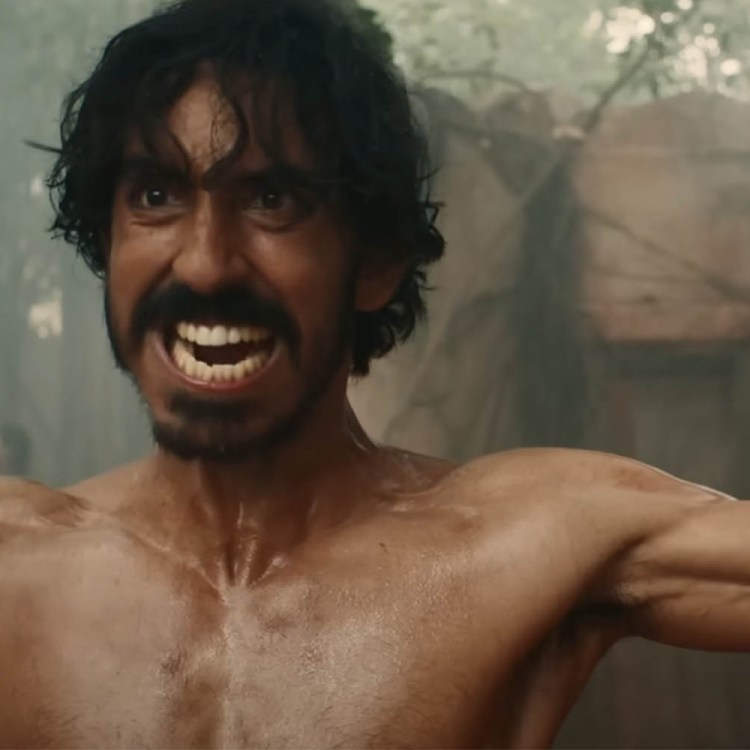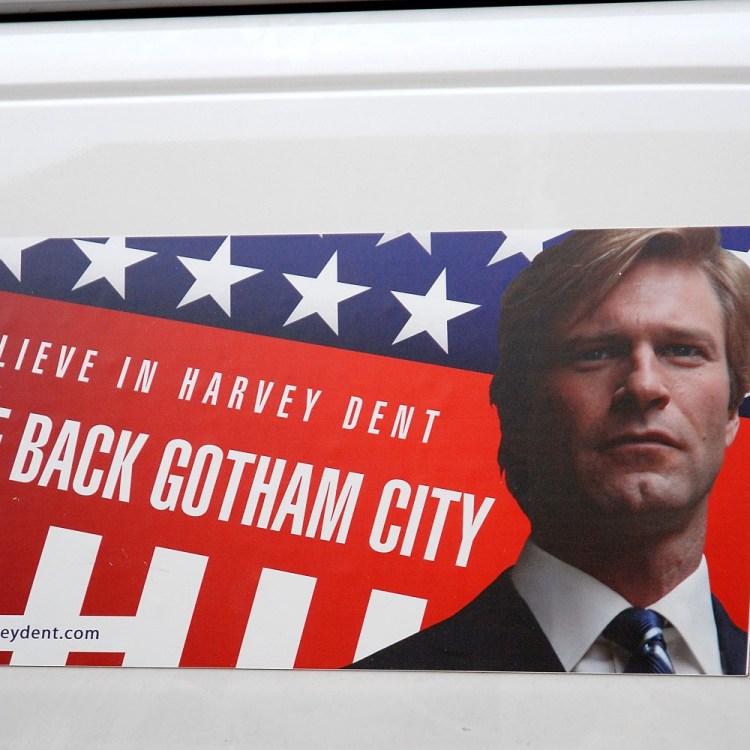The word “remake” can fill audiences with terror—and not intentionally.
Tabloid reports that then couple Ben Affleck and Jennifer Lopez intended to create their own version of Casablanca inspired Tina Fey to famously quip it was for people who loved the original, but wished it were terrible.
One reason: the allure of previous box office success. The new version of Murder on the Orient Express, opening on November 10, with a cast including Michelle Pfeiffer, Daisy Ridley, Judi Dench, and director Kenneth Branagh as Belgian detective Hercule Poirot, hopes to rekindle the magic of the original. The star-studded 1974 adaptation of Agatha Christie’s novel was, by any standard, a triumph: it pulled in substantial box office on a relatively small budget and even won a Best Supporting Actress Oscar for Ingrid Bergman while collecting five other Academy Award nominations, including one for Albert Finney’s Poirot.
On the other hand, the original, 1995 version of Judge Dredd, starring Sylvester Stallone as a violent magistrate trying to maintain order in a grim future world while wearing a deeply silly helmet, was pretty much a bomb. Sly picked up a Razzie nomination for Worst Actor. (He lost, but has “earned” numerous other Razzies including Worst Actor of the Century in 2000.) It generated $113.4 million worldwide on a $90 million production budget: once marketing and other expenses are factored in, this translates into a significant amount of money lost. (The movie also suffered from a trailer that inexplicably begins by posting a quote from Plato and features Stallone spouting leaden legal zingers like, “Court’s adjourned.”)
Despite all that, it received a remake 17 years later. 2012’s Dredd was made more frugally with a production budget of only $50 million, but this didn’t prevent it from being a box office disaster as well, collecting only $35.6 million worldwide.
And now it feels like there are more and more baffling remakes, whether it’s the 2016 version of Ben-Hur or 2017’s CHiPs, which earn horrific reviews while failing to recoup their budgets. (We’ll leave out remakes of foreign offerings for this article, which can often be justified by arguing that the films may not be in English or particularly known in the U.S. market.)
So why are the remakes so relentless?
“I’m of the opinion that remakes can be great,” said Paul Dergarabedian, the Senior Media Analyst for comScore. “You have characters that are already developed. The foundation is already there. What a remake can do is to allow a new generation of filmmakers to reinvent and reinvigorate it.” (Studios, of course, also like remakes because of the belief if you make something people have already heard of they’re just bound to see it, resulting in a bizarre phase when Hollywood became fixated on making films based on board games—a trend that faded when the American movie-going audience sank 2012’s Battleship.)
Dergarabedian’s favorite remake is 2010’s True Grit: “I would argue it’s better than the original.” Even if you prefer the 1969 John Wayne version, the Coen brothers still created “a great way to introduce an old story to a new generation.” Grit collected 10 Oscar nominations (including Best Picture, the first time a remake of an American film received such a nod) and earned $252.2 million on a production budget of $38 million.
And his classic case of a remake going awry?
“Point Break—that was one that was a head-scratcher for me.”
The 2015 version of the 1991 Keanu Reeves, Patrick Swayze surfing-and-bank-robbery caper earned $133.7 million worldwide, but with its $105 million production budget almost certainly lost a bundle. Hollywood accounting is notoriously shady—a studio tried to claim that Return of the Jedi failed to turn a profit despite grossing $475 million on a $32 million production budget. But reality is, it is genuinely difficult for most films to break even.
In his 2010 book The Hollywood Economist, Edward Jay Epstein explained how theaters take approximately 50 percent of the gross and that marketing expenses, including “prints, advertising, dubbing, and custom clearance,” tack on even more costs to a film’s overhead. Epstein estimates that a movie like 2004’s documentary Fahrenheit 9/11, which seems staggeringly lucrative based on its $228 million earned on a roughly $6 million budget, still wound up with “only” $78 million net revenues. In other words, when studio execs declare that the remake of Point Break lost money, they are probably telling the truth for once.
Legendary screenwriter William Goldman famously said of Hollywood: nobody knows anything. But there are some guiding principles that studios should obey when looking to resurrect old movie or TV properties. With Dergarabedian’s guidance, here are the rules of remakes:
Have a reason for the remake. This sounds incredibly obvious, but it is all too often ignored. In particular, Hollywood tends to churn out superhero films because if they don’t, they won’t retain the rights to the characters. Ang Lee’s 2003 Hulk, with its production budget of $137 million before advertising and $245.3 earned worldwide, lost money while generating some of the worst reviews of the two-time Best Director winner’s career. Clearly the character was in need of a thorough rethink before the reboot, but a mere five years later we got The Incredible Hulk, starring Edward Norton. This film also collected middling notices and disappointing box office ($150 million production budget, $263.4 million earned worldwide).
“Art made purely as a paint-by-numbers business decision, that’s when things go horrible wrong,” Dergarabedian said. “It’s like having somebody who doesn’t like to cook saying, ‘People love spaghetti—I’m gonna throw some ketchup on some noodles.’”
Technology can be the reason. In 1993, the original Jurassic Park earned over $1 billion worldwide on a budget of $63 million. 2001’s Jurassic Park III made $368.7 million worldwide on a $93 million budget. With steeply diminished returns, it seemed a good time to put the franchise aside.
A decade later, special effects had evolved significantly—enter 2015’s Jurassic World, with a production budget of $150 million and $1.67 billion earned worldwide.
“Remaking [special effects-heavy movies] allows today’s technology to be applied to them,” Degarabedian said. In general, hits that were cutting edge for their time but now look a bit dated tend to fall in the remake sweet spot.
Go slow on sci-fi. Degarabedian said that studios should be wary of remakes set in outer space or science fiction in general, because of the sheer cost: “Just the buy-in is $100 million to sell the idea.” If it’s not a smash, the losses can be staggering. Take the remakes of Total Recall in 2012 ($198.4 million earned worldwide on a $125 million budget) or RoboCop in 2014 ($242.6 million worldwide on a $100 million production budget). Factor in the advertising costs and other expenses and it wasn’t enough for these movies to be hits: they needed to be outright blockbusters.
Neither was. Indeed, it’s very likely you’ve forgotten they even existed. Beyond being disappointments, these films have something else in common which leads us to the next rule…
Don’t disrespect iconic directors. Both of those films were originally directed by Paul Verhoeven, whose movies—even the ones that don’t quite work like Showgirls—are uniquely his. “The originals are so good—both very well-reviewed, forward thinking, and amazing,” said Dergarabedian. This brings a new pressure to these remakes: “If you’re taking something that’s classic, there should be the feeling that you have to do it right.” (Things can go awry even when a talented director takes on the challenge: Gus Van Sant’s 1998 Psycho had a $60 million production budget and earned $37.1 million worldwide—notoriously faithful to Hitchcock’s original, one of the few changes was the inexplicable inclusion of Vince Vaughn’s Norman Bates masturbating.) Being a pale imitation of the original dooms a project to a very brief shelf-life post-theatrical release, because which version of Total Recall do you want to see: The one with Colin Farrell or the one with Arnold?
All Hail Horror. It’s the opposite of sci-fi: “If you’re going to remake horror, you don’t have to break the bank.” After all, horror films are generally “character-driven with practical effects.” Even if they flop, so little has been invested that it doesn’t particularly matter. And when they hit… wow. 1974’s Texas Chainsaw Massacre is believed to be one of the most profitable films of all time, but the 2003 version didn’t do too shabbily, with $107 million collected on a mere $9.5 million production budget.
Below, see the trailer to the 2017 prequel to 1974’s Texas Chainsaw Massacre, a reminder of just how many ways Hollywood can revisit a successful film idea.
This article was featured in the InsideHook newsletter. Sign up now.























